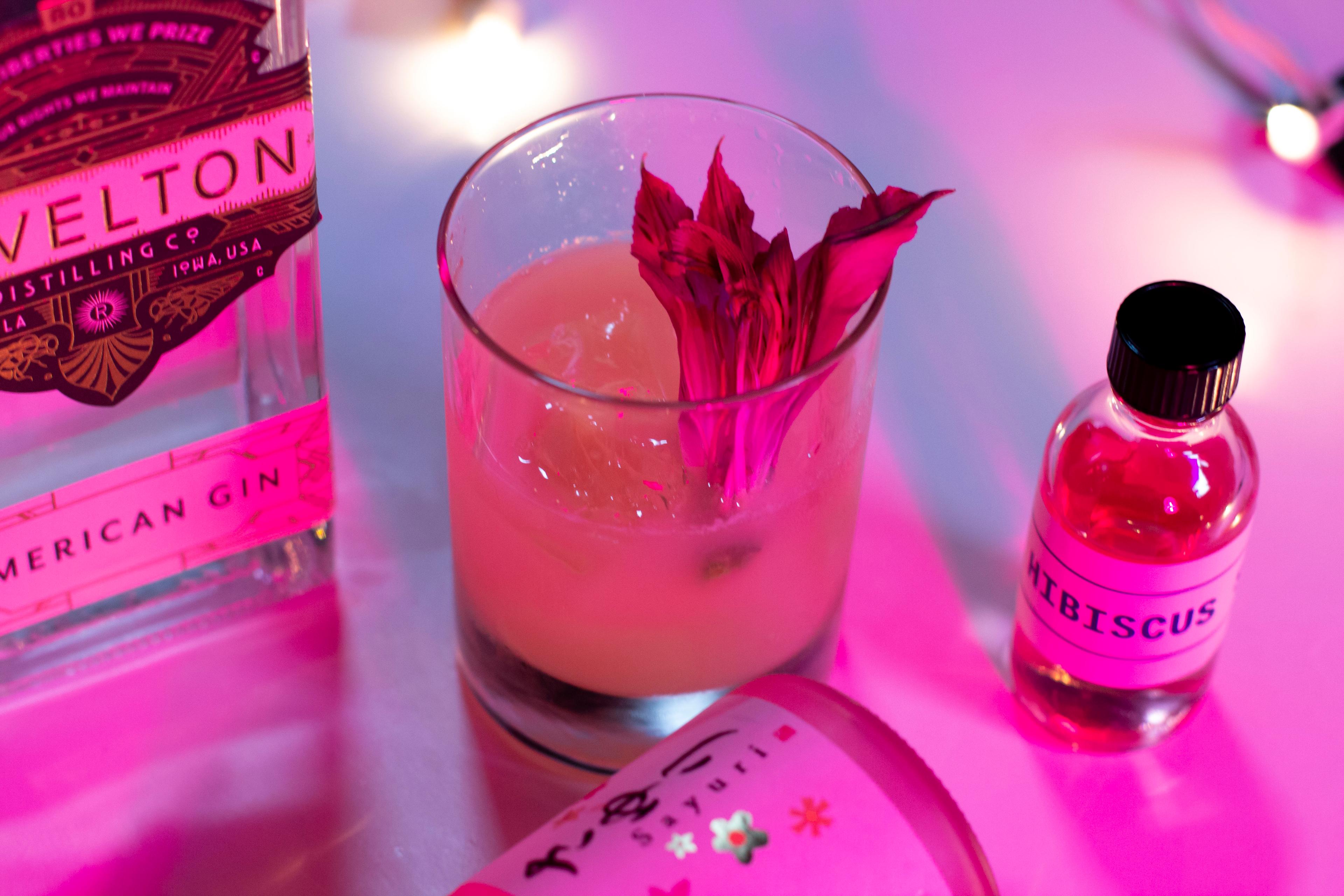
5 Date Night Drinks From The Beverage Architects
blog
Join us as we unveil a selection of our Beverage Architects' cherished cocktails (including one delightful mocktail) guaranteed to captivate the night.

Published on:
January 22, 2020
While the excitement of New Year's Eve has come and gone, we're sure your dedication to your New Year's resolution remains strong! If you're looking to start off 2020 with healthier habits, we've got some healthy drinks that can help you stay on track.
Thirsty from a long session at the gym? Consider replacing your go-to sports drink with water — or at least make sure you're getting the most out of your favorite sports drink.
If your workout is an hour or less, it's likely you won't see the added benefits of a sports drink, which can have as much sugar as a can of soda. Instead, water will keep your body hydrated without adding all that unnecessary sugar.
Another pro tip? Dress up your water by infusing it with sliced lemon, watermelon, or cucumber. These ingredients can give you the flavor experience you crave from a sports drink, but without compromising on the health benefits of drinking pure water.
If you do happen to be doing more intense training and need the extra boost of a sports drink, be sure to pay attention to your labels. Stay aware of how your drink's sugar levels balance out against the other essential nutrients you're looking for.
For example, sodium is the primary electrolyte lost in sweat, followed by potassium which regulates fluids. Maintaining a normal sodium balance in the body is crucial for brain function and low sodium levels can cause headaches, nausea, and even vomiting. Needless to say, it's important to replenish your supply of sodium and potassium after exercise. If you're new to your workout regime, you'll likely need more sodium from your sports drink than a trained athlete whose body has adapted to lose less sodium in sweat. When you're just getting started, a good rule of thumb is to look for beverages containing 500 to 750 milligrams of sodium and 80 to 200 milligrams of potassium per liter for best repletion, but always research what's best for you and your body!

Planning to cut sugary sodas from your diet? There are a lot of fizzy alternatives to a can of cola, which can contain 28 to 42 grams of sugar — that's about 150 calories!
Pick up a lightly sweetened seltzer or sparkling water. It can offer you the same bubbly sensation of a soda without the high sugar content. Slowly introducing sparkling water to your diet can make the transition away from sodas much easier while benefiting your overall health.
And yes, you can definitely apply the "dress up your water" rule here, too.
A yummy kombucha is also an excellent replacement for your favorite canned soda. Kombucha is a fermented drink that offers the same carbonation and sweetness of soda, but with a multitude of other health benefits.
Kombucha is particularly great for your gut health, because it contains good bacteria called scoby — short for "symbiotic culture of bacteria and yeast" (though its more popular nickname is "mother," since it reproduces during fermentation). Consuming kombucha can aid in digestion and the absorption of vitamins and minerals, making it as tasty as it is functional.
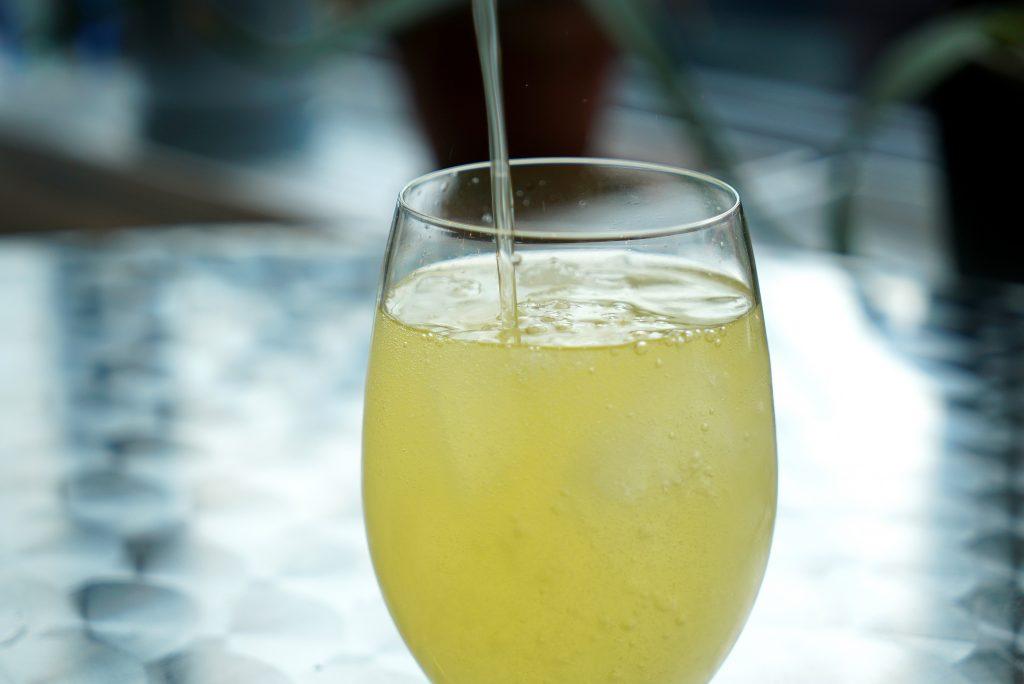
Do you need a boost in the morning, but are looking to maintain a positive trajectory for your health? Stick to iced or hot black coffee and tea — yep, that means no cream or sugar.
More and more studies show that black coffee, when consumed in moderation, can help to reduce risk of cancer and type 2 diabetes, improve heart and mental health, and even increase life expectancy. Coffee also contains polyphenols, a type of antioxidant. Antioxidants help rid your body of a natural waste called free radicals which cause inflammation and various other problems. So in a way, when you consume coffee, you're cleaning up your system.
Drinking up to 5 cups of coffee daily is considered moderate, but individuals who are pregnant or are sensitive to caffeine should limit their consumption.
Black, green, white, and other traditional teas are also healthy options. Like coffee, they're rich in polyphenols (the plant chemicals and antioxidants that give each tea its flavor and aroma) and can help lower blood pressure and reduce your risk of heart disease and cancer. A recent study even found that habitual tea drinkers — those who enjoyed the beverage at least three times a week — live longer than non-drinkers. And although tea has a lower caffeine content, it's a good choice for those who are more sensitive to caffeine or don't enjoy the taste of coffee.
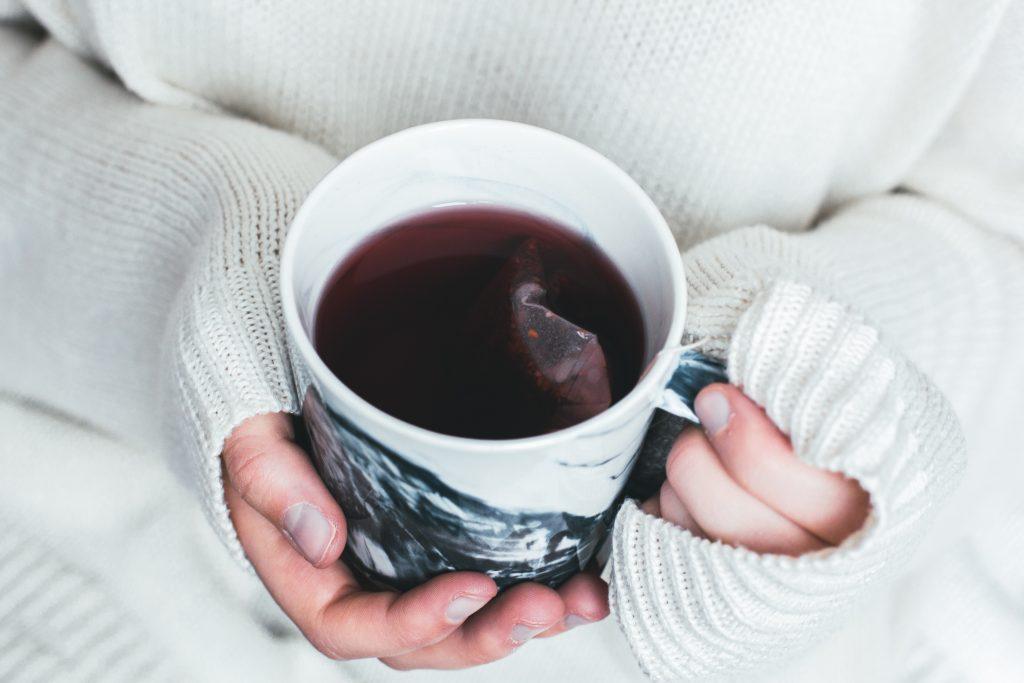
Making positive changes to your life and achieving your New Year's Resolutions is possible! If you've fallen behind, don't give up just yet. Now that you have a few tips, take those small steps now and you'll be well on your way to building new, healthier habits to last a lifetime. And that's something we can all cheer for.
Do you have an idea for the next healthy drink trend? We can help you make it a reality! Get started by filling out this form or giving us a call at (502) 273-5214.

blog
Join us as we unveil a selection of our Beverage Architects' cherished cocktails (including one delightful mocktail) guaranteed to captivate the night.
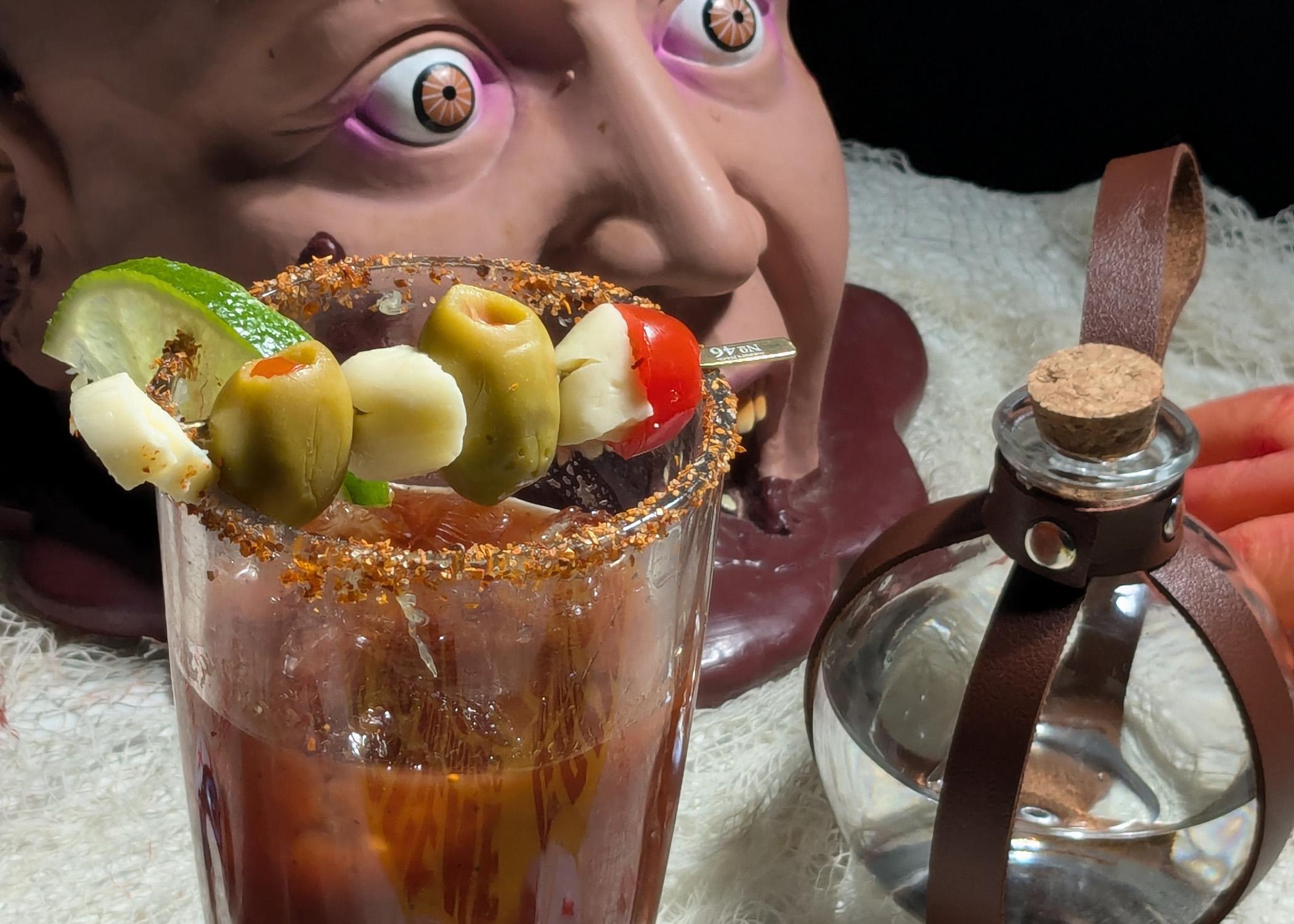
blog
Get ready to toast to the season with spirits from the bar... and beyond, with the Creepiest Cocktails From Beverage Experts.
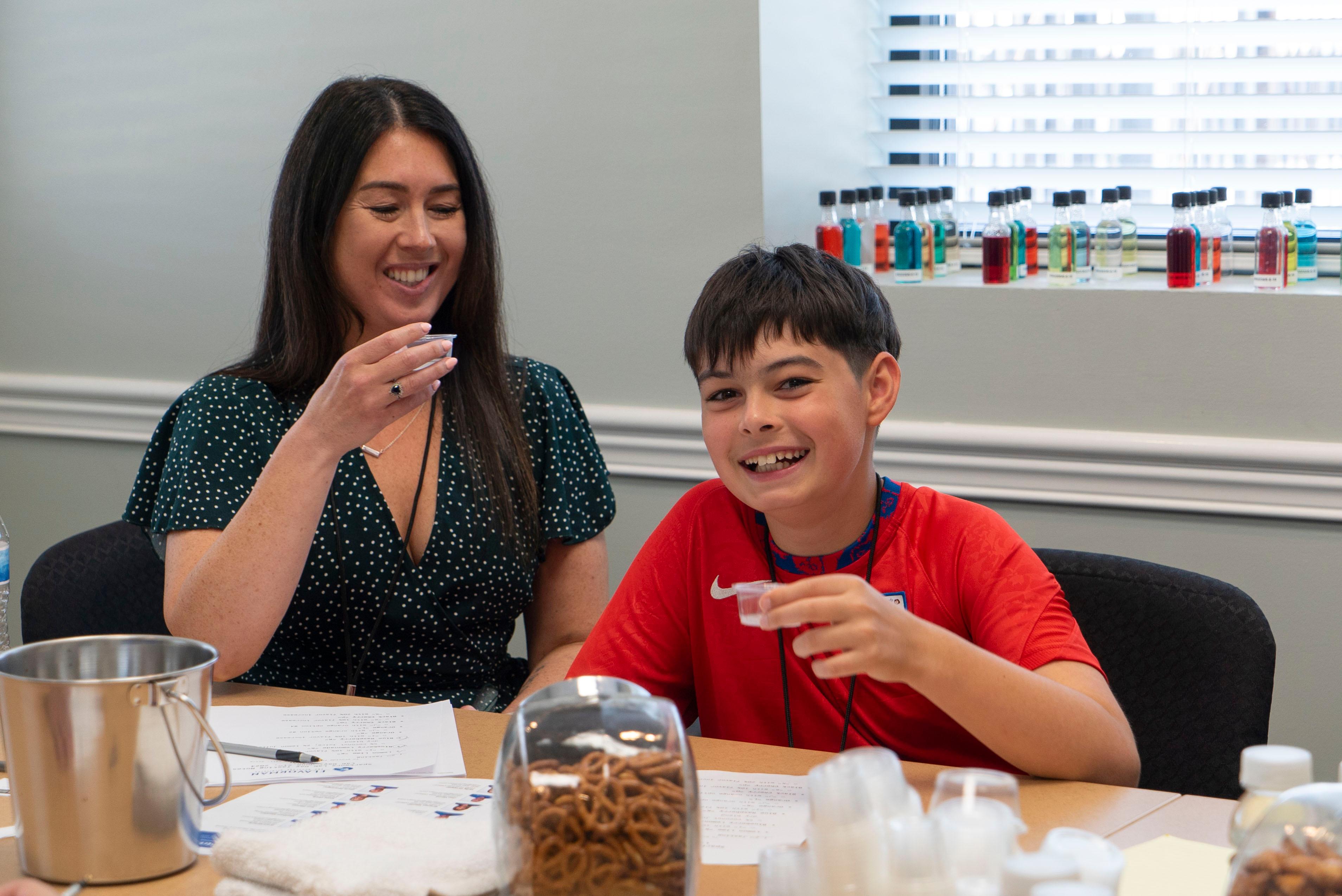
blog
12-year-old Joey DiRocco, Brand Ambassador of Sparklytes! Over several months, the Flavorman's Beverage Architects collaborated with Joey and his parents, Justin and Francesca Navarro, to develop a line of flavored hydration beverages for Sparklytes.